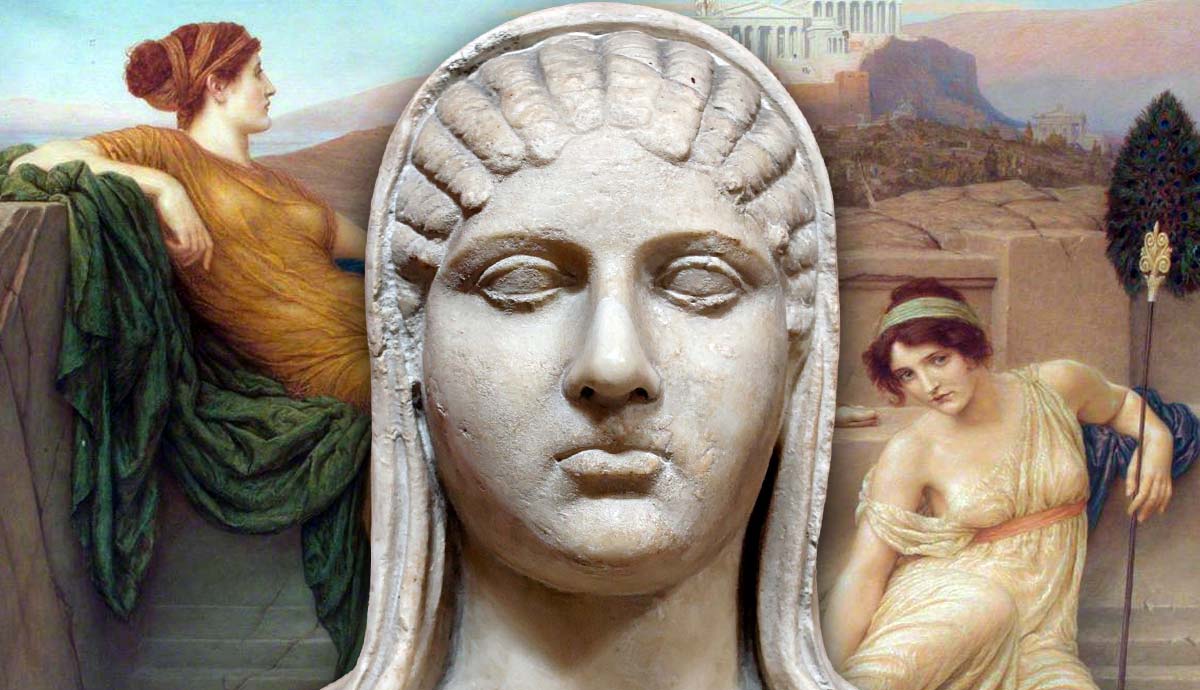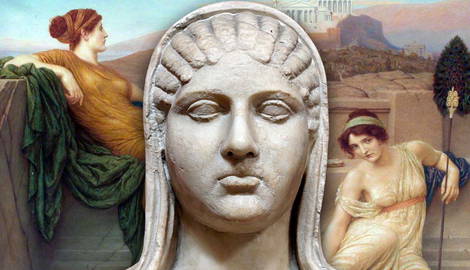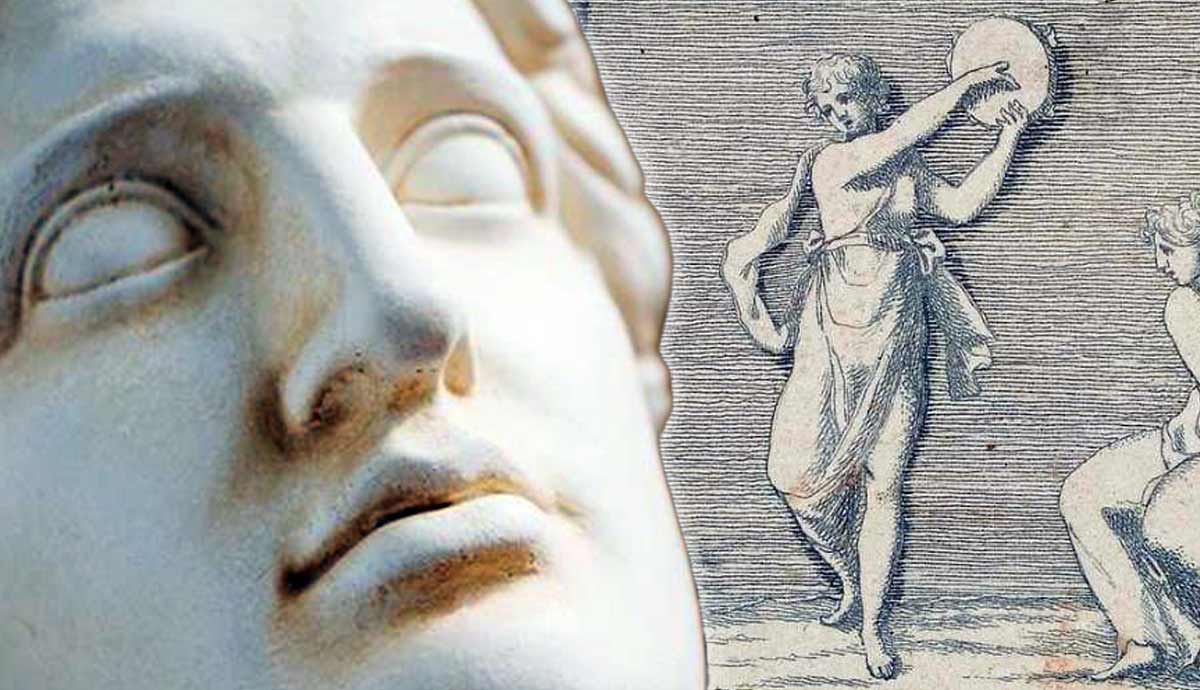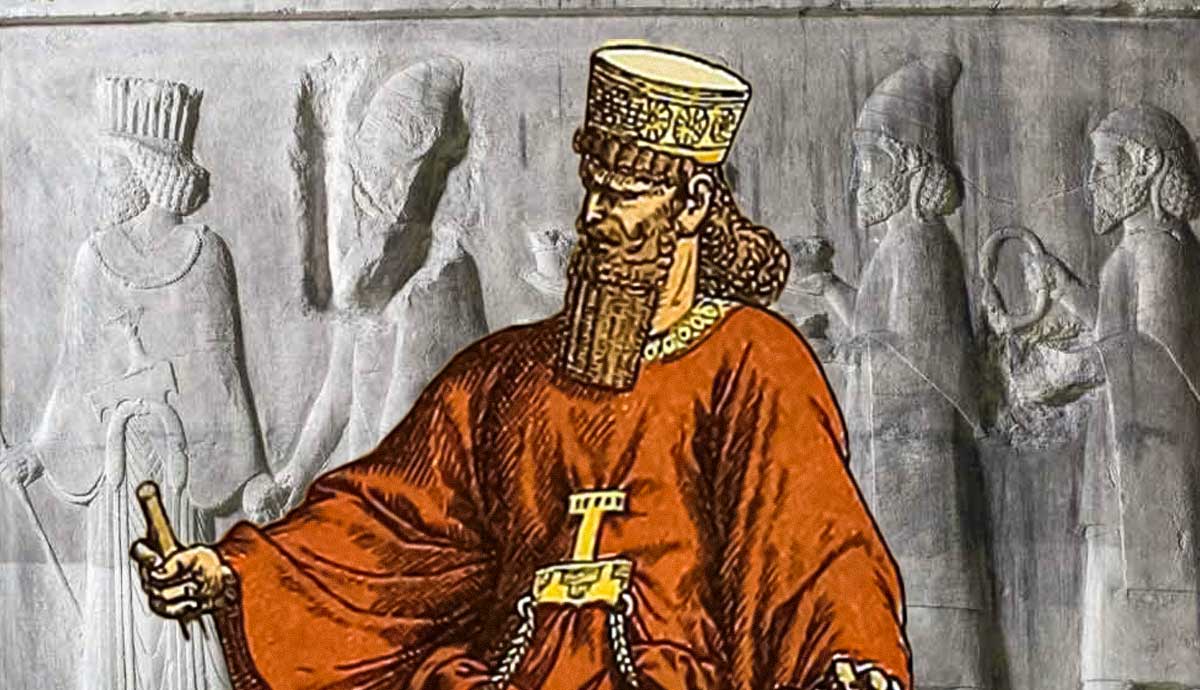
Aspasia of Miletus is best known for her relationship with Pericles — the 5th-century BCE democratic leader of Athens. However, she was an influential personality in her own right. Notably, she was skilled in philosophy and, unlike many other women of her time, educated, politically inclined, and persuasive. Although she is famously known as a courtesan with her own brothel, the evidence for this is highly problematic.
Aspasia’s Time: The ‘Golden Age’ of Athens

Also known as the ‘Golden Age of Athens,’ the fifth century was a time of progress for Athens with significant advancements in every sector, including art and architecture. It was during this time that the Parthenon was built, and democracy was cemented as the political institution of Athens. The leader of the time, Pericles, was both popular and controversial, with as many allies as political opponents. It is perhaps a measure of his skill as a statesman that Pericles was one of the few popular politicians of the time not to be ostracized from Athens. Therefore, it is somewhat of a surprise that such a politically impressive character was to partner himself with a foreign-born woman, Aspasia of Miletus. Or perhaps this speaks more of the strength of Aspasia’s character.
Origins of Aspasia

Aspasia came from Miletus, Ionia. As a metic—a foreigner—who lived in Athens, she had some privileges but was not considered a full citizen, but rather a “resident alien.” Due to her “resident” status, Aspasia was able to circumvent many of the restrictions that were placed on her Grecian women counterparts. It is apparent that when she arrived in the mid 440s BCE (an exact time not known), she was already an educated woman. Especially skilled in the art of conversation and rhetoric, she had been schooled by her father, Axiochus. It is assumed this education was welcomed within the more scholarly circles.
As a successful courtesan of her own house, although one of ill-repute filled with young courtesans (Plutarch, Pericles, XXIV), Aspasia entertained companions of the highest Athenian society and hosted parties of a political nature under the guise of entertainment. Disputed ancient writers describe her as a hetaera — a professional entertainer for men of the highest echelon of society. It was perhaps through these parties or a rumored symposium that Aspasia met Pericles, already a great statesman in Athens. As a foreigner born, she was not allowed to marry Pericles. Ironically, his own citizenship law insured this, and instead lived with him as a pallakis (concubine), eventually bearing him a son of the same name, Pericles the Younger. While Pericles had to divorce his wife to do so, history remains unclear as to whether Aspasia was the direct cause.
Aspasia’s Education

Famous for her companionship of Pericles, Aspasia also developed her own interests, especially in rhetoric and philosophy. Records of her achievements are brief, a product of a male-dominated society. Still, there is evidence that Aspasia opened her academy for the elite young women of Athens which also became a center for some of the most influential men of her time. Although none of her writings have survived intact, Aspasia was credited by ancient writers for her written works. Her influence was said to be discernible, by both her detractors and those more open, on the Funeral Oration that Pericles is renowned for in Thucydides’ History of the Peloponnesian War. In addition, Pericles, while enamored with her, is said to have considered her his intellectual equal in sharpening his rhetorical skills.
Problems With the Source Material

However brilliant Aspasa may have been, she is always mentioned in relation to the men who interacted with her. She is linked with Pericles, Socrates, and later husband Lysicles in a way that reveals more about them and less about her character and philosophy. The comedies of the time mainly used Aspasia as a means of demeaning and ridiculing Pericles, who broke tradition with his foreign-born mistress. Even worse, Aspasia disappears from history upon the death of the men in her life. This seriously limits our understanding of her.
Supporters and Detractors

It is clear from extracts from various ancient sources that Aspasia was memorable, at least enough to comment on in public oration and plays. One of her most fervent adversaries was the contemporary playwright Aristophanes, who, in his Acharnians, blamed her for the Megara Decree, an event that triggered the Peloponnesian War. However, it is important to note that Aristophanes was, as a poet and comedic playwright, inclined to write evocatively about the time’s influential people, including Pericles and Cimon. His derogatory comments about Aspasia are, therefore, more of an illustration of her influence and position than not. Likewise, Cratinus and Eupolis, playwrights of Old Comedic style, did not refrain from insultingly labeling her “a dog-eyed concubine” and a whore (pornê) and mother of a bastard, respectively.
Attacks on the character of Aspasia did not stop with the playwrights. Later writers and historians mirrored these opinions. While Athenaeus, a Greek grammarian, built on the work of Aristophanes, Plutarch, a later Greek biographer, presented a more balanced view. Still, his view was not as favorable for Pericles, posing the relationship between the two as one of an “amatory sort.” Plutarch stressed that though Pericles saw Aspasia as possessing rare political wisdom, he would “salute her with a loving kiss” twice a day, which was unusual in marriages of the time. Plutarch even stresses that Aspasia was such a famous courtesan that the Persian satrap Cyrus (the Younger) renamed his most favored concubine after her (Pericles, XXIV.7). While these writers reflect the less than savory opinions of past authors, they also comment on Aspasia’s friendship with Socrates.

Socrates appears to have respected Aspasia and sought her wisdom and teachings on rhetoric and oration. In Plato’s Menexenus (235e, 236b), Socrates says “…for she who is my instructor is by no means weak in the art of rhetoric; on the contrary, she has turned out many fine orators, and amongst them one who surpassed all other Greeks, Pericles, the son of Xanthippus.”
In Xenophon’s Memorabilia (II. 6), Socrates discusses Aspasia’s matchmaking advice and the merits of truthful praise, while in Oeconomicus (III. 14), Socrates refers to Aspasia teaching him rhetoric and her superior insight in educating wives.
Aeschines, Socraticus, and Cicero also comment on Socrates’ famed friendship with Aspasia. Cicero (De Inventione, 1.31.51.) mentions that she was an accomplished friend of Socrates and wife to Pericles.
The End of Aspasia

In 430 BCE, near the beginning of the Peloponnesian War, a plague broke out in Athens. It would have disastrous consequences. Pericles lost his two legitimate sons from his first wife, Paralus and Xanthippus. and requested an exemption to his own marriage laws to allow the son he had with Aspasia to be recognized as a legitimate citizen. While this was granted, Pericles himself was struck down by the plague.
Plutarch (Pericles, XXIV), quoting Aeschines, writes that she was protected by Lysicles, the sheep-dealer, soon after Pericles death. Upon moving in with her, this man of low birth became the first citizen of Athens under her tutelage, a spiteful slur but also an acknowledgment of Aspasia’s skill in the political sphere. The partnership of Lysicles and Aspasia ended with his death less than a year later, and she subsequently disappeared from history.
Pericles and Aspasia’s son, Pericles the Younger, would later be tried and put to death alongside a few other generals in the famous trial that followed the battle of Arginusae in 406 BCE. It is unknown whether Aspasia was alive to see her son’s execution.










